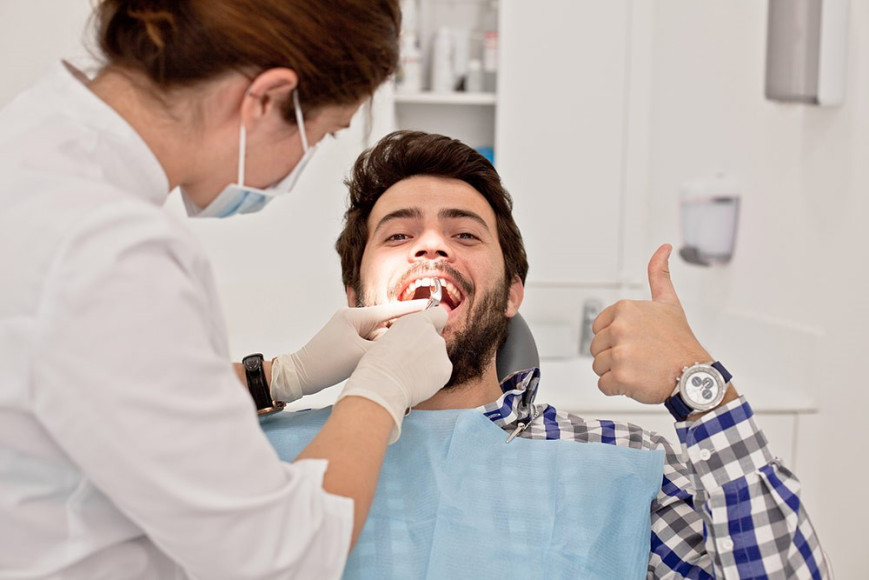With 2019 almost over, many of us are looking back on the past year and thinking about what we are proud of – and what we wish we had done differently.
I always find the end of year holidays a perfect time for reflection. With everything slowing down, and with time away from work giving much-needed perspective, it’s easier to gain a sense of perspective on the triumphs and challenges that have come and gone. Inevitably, these thoughts of what has passed lead to thoughts about the year to come.

New Year’s resolutions are a great way to explore goals and aspirations for the coming year, and this applies just as much to business life as it does to personal life, so if you want to start 2020 on the right foot, here are a few dental-clinic related resolutions to consider making.
1. Streamline Your Communications
Communication – whether with patients, prospects, or between team members – has always been part of the essential everyday work of dental clinics around the world, and so keeping up with changing patterns in how we communicate in the healthcare industry is essential.
But good communication is about a lot more than just making sure you are texting people rather than calling them. Smooth internal communication protocols are essential for any dental clinic, and using a software platform that provides an integrated way to share information and update key team members is going to be a big part of that in the coming years.
The right communication platform will centralize the communication features your clinic uses every day, which can help you save time and reduce chaos and confusion. Keeping an archive or a history of your clinic’s communication, patient contact info, and even account balances all in one place means you won’t need to purchase a number of different software platforms, or have multiple apps open all at once.
You can also use message templates to maintain a sense of consistency with your messaging, and save your communications staff vital time. The right communications management software can also help you schedule messages in advance, allowing you to automate a great deal of the work.
Introducing new tools and platforms will mean that your team needs to be on the same page, but it may also mean exploring new options staff-based communication platforms outside the office – like mobile dental applications that help your team access and send the information they need no matter where they are.

2. Make Your Scheduling More Patient-Centric
The days when patients picked up the phone when they wanted to book or reschedule an appointment are long gone. So, if you want to reach new patients in younger age groups, you need to make sure your approach to scheduling is calibrated to appeal to that tech-savy demographic who overwhelmingly prefer to be contacted via text or email.
Understanding the importance of multi-channel communications is key, as some patients prefer to be contacted in different ways. Using a combination of text, phone, and email messages will allow you to maximize your outreach.
One of the best ways to develop more patient-centered scheduling is through dental appointment software that makes it easy to contact current and prospective patients using their preferred methods of communication.
Not only will this help with patient acquisition and retention, it will also make it easier to ensure patients don’t fall through the cracks due to miscommunication.
3. Upgrade Your Data Storage
One major concern that every dental clinic needs to be taking seriously these days is data storage.
In the dental profession, we tend not to think of data as being at the heart of the service we provide, but the truth is that without data, it is impossible to offer high-level care. After all, how can you offer a useful prognosis to your patient’s oral complaints if you don’t have access to their medical history?
Dental clinics face two choices when it comes to their data: store it locally using on-site servers or upload it to the cloud. While storing information locally may seem easier – and in some cases, may be preferable – the cloud offers far greater security and convenience.
The benefits of cloud-based data storage include:
Greater Accessibility and Usability
With cloud-based data storage (like Dropbox or Microsoft’s OneDrive), users can drag and drop – and then modify – files from anywhere, with no prior technical knowledge.
Disaster Recovery
Having a data backup plan is important for any business, but doubly so for a patient-based business like your dental clinic. Cloud storage creates a constant, real-time backup of all your important documents – including sensitive patient information, which can be recovered instantly from anywhere.
Reduced Cost
Internal power and resources associated with private servers are wiped clean with cloud storage. While cloud-based options will charge a usage cost, this basic fee is far less than the alternative.
If you want to enter the next decade with a modern data storage protocol that will meet the needs of tomorrow, look into some of the dental cloud server options that are available.
Many things go into successfully running a healthcare business, but in my experience the ability to anticipate and prepare for upcoming challenges is one of the most important.
As you reflect on the accomplishments of 2019, don’t forget that a whole new set of challenges is waiting for you around the corner in 2020. If you want to make sure you start the year strong, investing in improved communications, scheduling, and data storage software is one of the best places to start.
Get in touch with ABELDent today to find out how our unique dental platform can help provide you with the integrated tools that will help your clinic flourish in the coming year.


